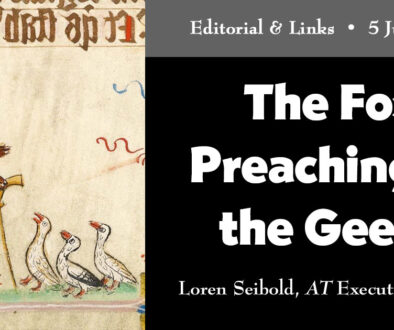Sharing Scripture for November 8 – 14, 2020
[symple_heading style=”” title=”Worship in Education” type=”h1″ font_size=”40″ text_align=”center” margin_top=”0″ margin_bottom=”30″ color=”undefined” icon_left=”” icon_right=””]
This is a tool for you to use if you lead a Sabbath School (SS) class or small group. It is keyed to the Bible texts used in the current week’s Adult SS lesson and includes a brief story from current news you can use to introduce the discussion and then a series of discussion questions in a relational pattern designed to build fellowship and spiritual reflection.
For use: November 8 – 14
Texts: Daniel 3; Revelation 14:6-12; Psalm 78:1-17; John 4:7-26; 1 Chronicles 16:1-36; Mark 7:1-13
When Rutger Bregman researched data for his recent book, Humankind: A Hopeful History, he uncovered an incredible story.
He could not believe that the character of humanity is truly reflected in William Golding’s novel The Lord of the Flies, so he looked for something to show a more uplifting glimpse of human nature. Golding assumes the cynical view that humanity, when removed from the constructs of civilization, devolves into a dark wasteland of brutality. Bregman instead discovered a real-life Lord of the Flies story that gives a much more hopeful picture of humanity.
In 1965, six schoolboys from Tonga skipped out from their parochial boarding school and stole a boat to escape to Fiji. A storm, however, shipwrecked them on a deserted island. There they established their own form of civilization. They agreed not to quarrel, they set up a system of equitable governance, and they cared for each other as best as they could. “The boys set up a small commune with a food garden,” writes Bregman. They “hollowed-out tree trunks to store rainwater, (built) a gymnasium with curious weights, a badminton court, chicken pens and a permanent fire, all from handiwork, an old knife blade and much determination.” They began and ended each day with something they learned at school: singing and prayer. In their case, worship in education gave them a structure that helped keep them alive during their 15 months on the island.
This week’s lesson begins with this profound statement: “Worship is part of humanity, part of human nature, even fallen human nature.”
Who, or what, we worship, defines who we are as individuals. Our characters tend to reflect that to which we give our highest honor. Worship—literally, “worth-ship”—reveals what we aspire to. Education helps us determine who is worthy of our worship.
The education process can either point students toward God as the true and worthy object of worship, or lead toward an idolatrous system of false worship. The nation of Israel had a deeply intimate experience with the God of heaven, yet they still incorporated blasphemous worship practices that eventually culminated in their destruction. Their experience shows us that humanity will either descend into a brutal wasteland, or ascend toward godly living depending upon our worship focus.
One way to discover our focus in worship is to honestly identify where we invest our time and resources. Jesus revealed that our heart’s condition is reflected in the location of our treasures. A thorough education process helps us learn where those investments will give us the greatest returns. Some investments will reward us with temporal means, and those can serve a godly purpose if we keep a proper perspective when we put those means to work for God’s mission. In those cases, the investments will also bring eternal dividends.
[symple_divider style=”solid” margin_top=”20″ margin_bottom=”10″]
Connecting: As you recall your educational experience, what were you taught to worship (either overtly or covertly)? Did you have to unlearn some of these concepts later in life? Share your thoughts with your group through whatever social connections you are currently employing.
Sharing: Review the highlights of the story in Daniel 3. How do you think you would respond to similar pressure to accept false worship concepts in a classroom?
- I would just quit the class rather than submit to bogus teachings
- I would push back until they kicked me out
- It’s easier for me to stand for truth if there are others standing with me
- I would ask for equal time to respectfully present an alternative view
- I don’t believe the untruths, and I won’t change my mind, so I can just go along with it to get through the class
- Other:
Applying: Since everyone has an innate need to worship, how can you work to ensure that your children learn a good foundation for biblical worship?
Valuing: Which aspect of worship do you tend toward, spirit or truth? Do you believe that you have a healthy balance of both in your worship experience? If not, how can you develop that balance? Connect with another member of your group (through your online service if necessary) and share your thoughts. Conclude by praying for each other.
~ Chuck Burkeen




